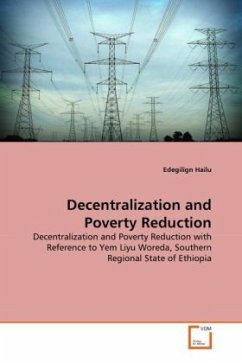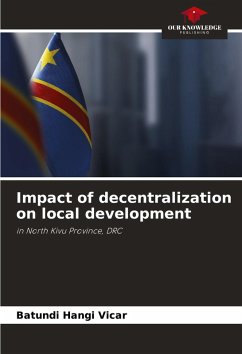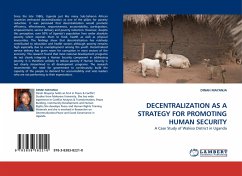
EDUCATION DECENTRALIZATION IN ETHIOPIA
THE CASE OF SEMEN ACHEFER AND DEBUB ACHEFER WOREDAS
Versandkostenfrei!
Versandfertig in 6-10 Tagen
45,99 €
inkl. MwSt.

PAYBACK Punkte
23 °P sammeln!
Dissatisfied with centralized approaches to giving local public services in general, and education service in particular, a large number of countries are decentralizing responsibility for these services to lower level governments. Decentralization moves decision-making closer to the people and may give them better service delivery in general, and education service in particular. In principle, lower level governments are empowered to determine their own priorities for effective service delivery. However, in practice insufficient funding, inadequate manpower and low level of community participat...
Dissatisfied with centralized approaches to giving local public services in general, and education service in particular, a large number of countries are decentralizing responsibility for these services to lower level governments. Decentralization moves decision-making closer to the people and may give them better service delivery in general, and education service in particular. In principle, lower level governments are empowered to determine their own priorities for effective service delivery. However, in practice insufficient funding, inadequate manpower and low level of community participation make it difficult to realize the positive potential of decentralization. In this regard, this book briefly examined the performance of decentralized education service delivery by concentrating on variables like institution, manpower, finance and community participation in the study areas in particular and the country at large. Therefore, the book is vital to provide valuable information for practitioners and experts on the existing performance of decentralized education service delivery.












